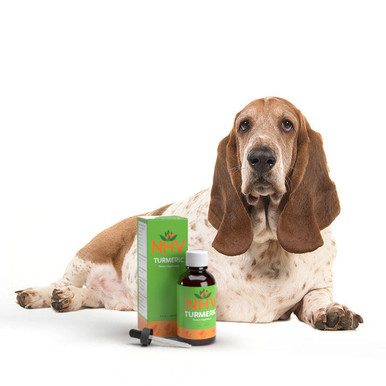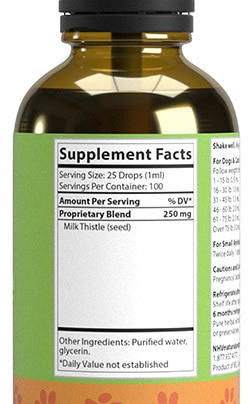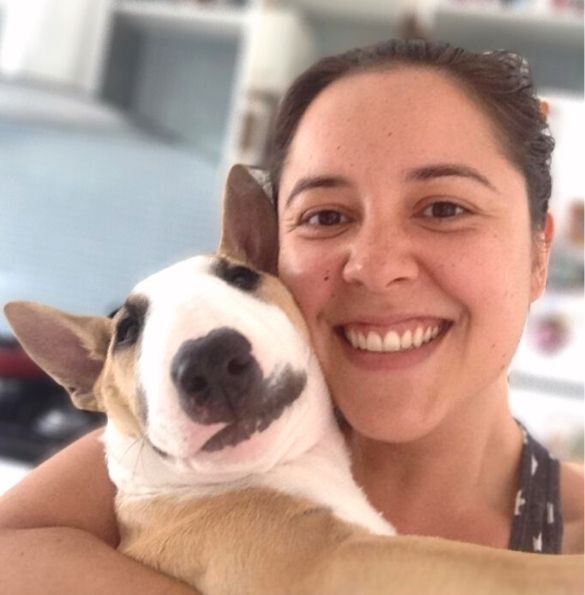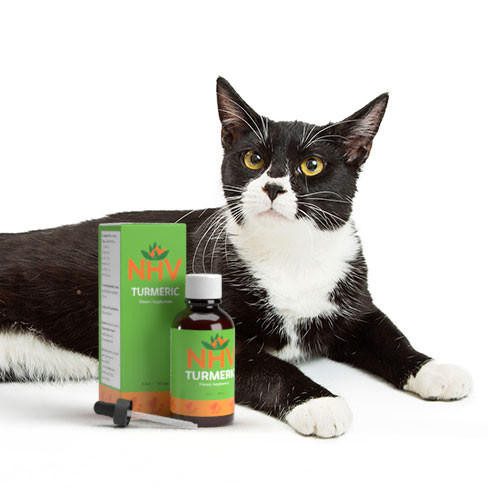

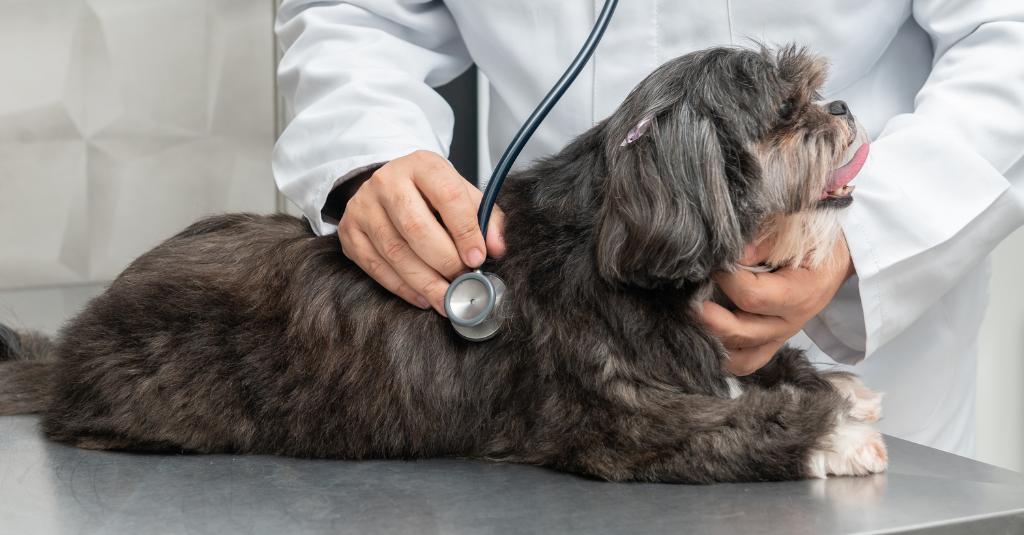
As a pet parent, there is nothing more important than your fur kiddo’s health. One of the life-threatening conditions that can affect your pets, particularly dogs and cats, is pyometra. Understanding this condition can help you recognize early signs and take necessary actions for your little one’s health.
Pyometra in dogs and cats is a severe and potentially life-threatening condition that affects females
Pyometra in dogs and cats is a severe and potentially life-threatening condition that affects females. This uterine infection can lead to serious health complications if not addressed promptly. As a pet parent, understanding the causes, symptoms, and treatment options for pyometra is crucial for ensuring the well-being of your furry companions. This Vet Talk aims to raise awareness about pyometra, recognize early signs, and take preventive measures.
What Causes Pyometra in Dogs and Cats?
Pyometra is primarily caused by hormonal changes in the reproductive tract of female dogs and cats, often following a heat cycle. The condition is characterized by a uterus infection, typically involving bacterial growth, such as E. coli, accumulating pus within the uterus. This infection can occur in any intact female but is more common in older, unspayed pets.
Recognizing the Symptoms of Pyometra
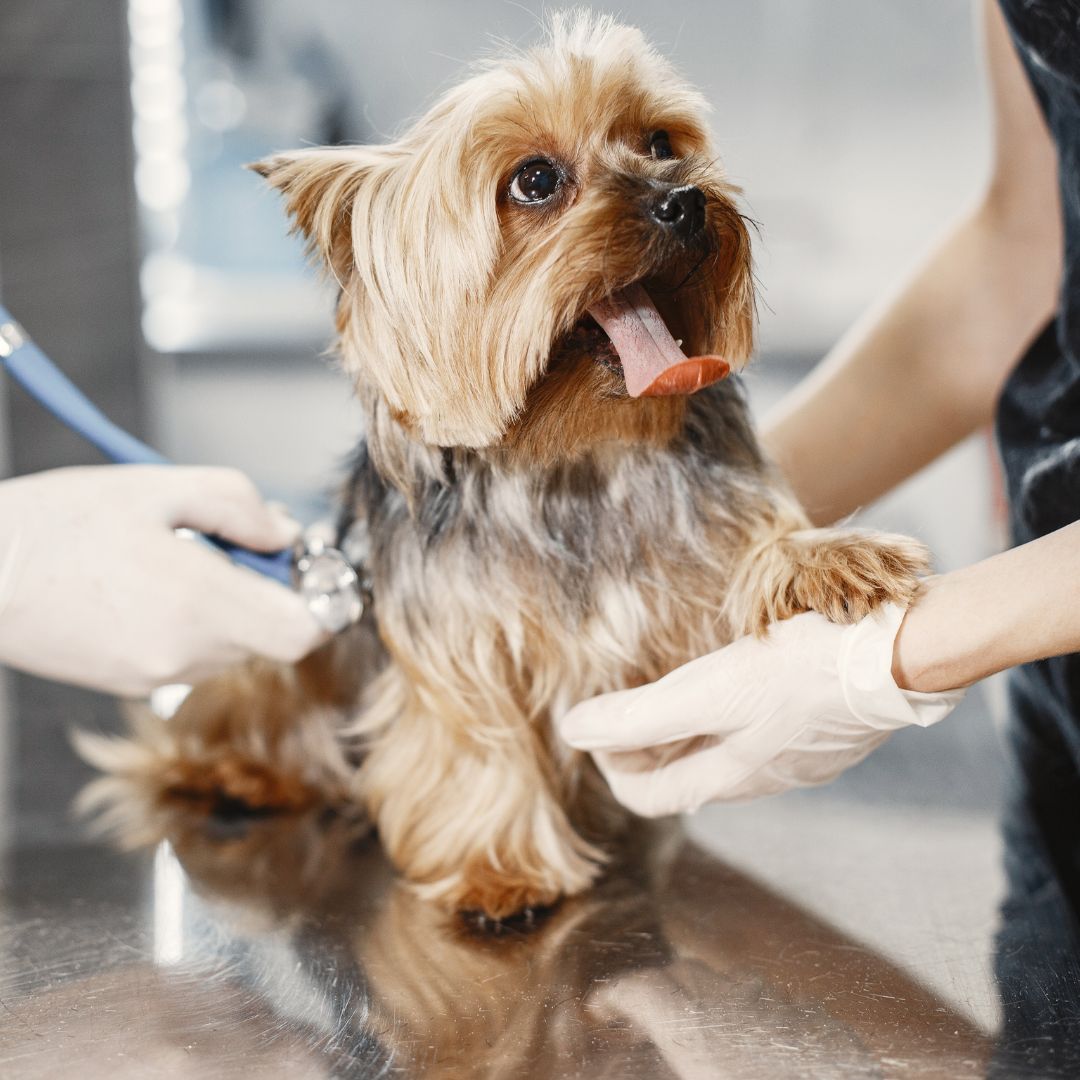
Early detection of pyometra is incredibly important for treatment. Common symptoms include lethargy, depression, anorexia, excessive water intake, excessive urination, pale mucous membranes (like the gums of the mouth), and bloody vaginal discharge.
These signs may indicate that the pet is unwell and requires immediate veterinary attention. Recognizing these symptoms early can prompt medical intervention, potentially saving your little one’s life.
Treatment Options for Pyometra
The most common and effective treatment for pyometra is the surgical removal of the uterus, known as a hysterectomy. This procedure is often performed alongside ovariohysterectomy (removal of the ovaries), commonly referred to as spaying. In some cases, if your pet is too weak for surgery, veterinarians may opt for medical management with antibiotics and hormonal treatments. However, this approach carries a higher risk and is generally less successful than surgery. The prognosis for survival is high if the surgery is performed promptly, and the systemic infection is managed appropriately.
Preventing Pyometra in Dogs and Cats: The Role of Spaying
Spaying is the most effective preventive measure against pyometra. By removing the uterus and ovaries, the risk of developing this infection is eliminated. Spaying not only prevents pyometra but also offers broader health benefits, such as reducing the risk of mammary cancer and eliminating heat cycles, which can lead to unwanted behaviors. It is recommended to spay pets before their first heat cycle to maximize these health benefits.
Supporting Your Pet’s Recovery with NHV Supplements
After surgery, supporting your little one’s recovery is essential. NHV supplements can aid in the healing process by balancing the immune system and promoting overall health. These natural supplements can help manage pain, reduce inflammation, and support the body’s natural healing processes, ensuring a smoother recovery for your pet.
- NHV Turmeric: it may help with inflammation and discomfort while guarding the liver. Its antioxidant and anti-septic properties may help reduce the damage to the uterus and other vital organs due to infection
- NHV BK Detox: there is a high possibility for septicemia (blood poisoning due to accumulation of infectious agents or toxins produced by them in the blood) in a pet with pyometra. BK-Detox may detoxify such impurities in the blood while flushing toxins from the liver, kidneys, and other organs.
- NHV Milk Thistle: is well known for its gentle detoxification and regenerative nature on liver and kidney tissues, which may be affected by concurrent infection and medications.
Please remember to stop giving the NHV supplements one week before and one week after the surgery.
Understanding pyometra and taking preventive measures can significantly enhance their quality of life. Regular veterinary check-ups and being vigilant about unusual symptoms can help in early detection and treatment, safeguarding their health and well-being.

Turmeric
Turmeric - A supper food that is beneficial for over all wellbeing
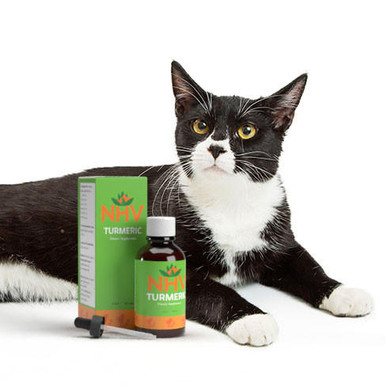
Turmeric - A supper food that is beneficial for over all wellbeing
- item number
- ph8100fb
- weight
- 0.7
-
Description
- item number
- ph8100fb
- weight
- 0.7
-
Ingredients
-
Dosage
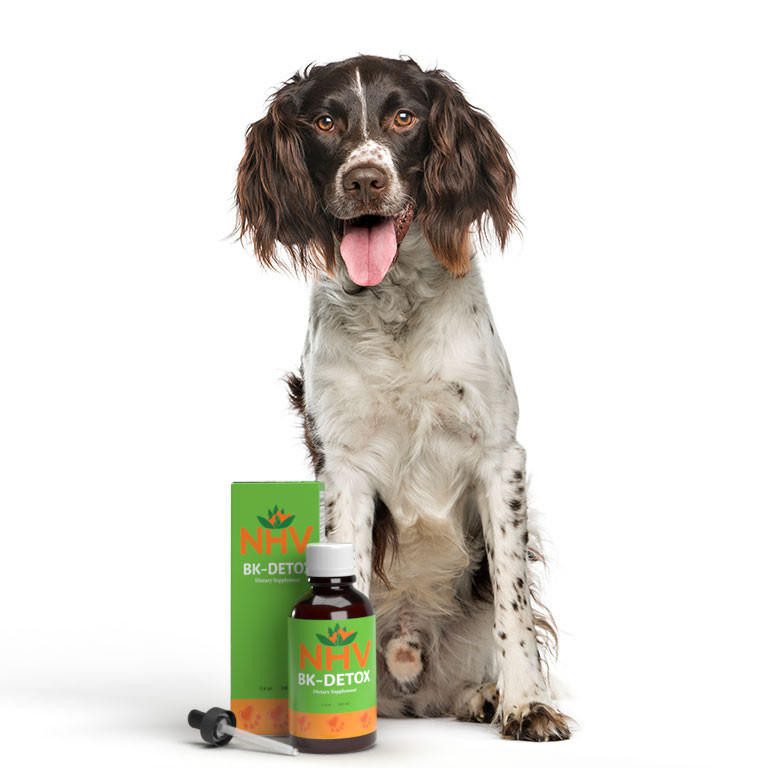
BK Detox for Pets with Compromised Immune Systems
BK Detox - Natural support for dogs with compromised immune system.
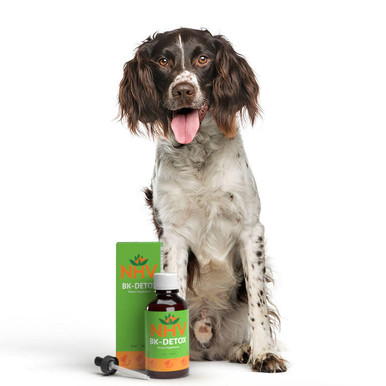
BK Detox - Natural support for dogs with compromised immune system.
- item number
- ph7800-fb
- weight
- 0.7
-
Description
- item number
- ph7800-fb
- weight
- 0.7
-
Ingredients
-
Dosage
liver support
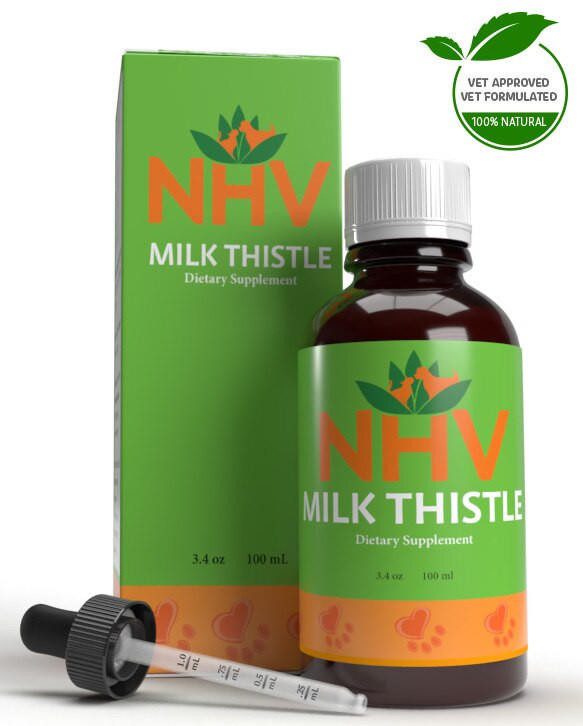
Milk Thistle for Cats
Milk Thistle for Cats
100% Natural Liver and Kidney Detox and Cancer Support in Cats
buy 2 and save $3
3 month supply for a small to medium size pet
- Helps support the regeneration of the liver
- Antioxidant properties may provide anti-cancer support
- Helps improve liver and kidney function
- Glycerin-based and safe for long-term use
A popular herb among conventional and holistic veterinarians, Milk Thistle is often recommended for cats who have liver disorders, are fighting cancer, diabetes, kidney issues, gallbladder and bile duct issues, as well as hyperthyroidism.

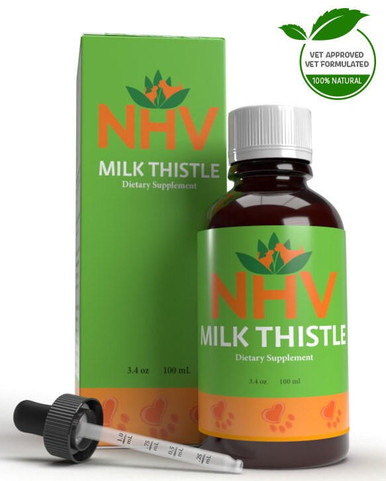
- Helps support the regeneration of the liver
- Antioxidant properties may provide anti-cancer support
- Helps improve liver and kidney function
- Glycerin-based and safe for long-term use
A popular herb among conventional and holistic veterinarians, Milk Thistle is often recommended for cats who have liver disorders, are fighting cancer, diabetes, kidney issues, gallbladder and bile duct issues, as well as hyperthyroidism.

Milk thistle, also known as Silybum Marianum is an herb that has been used for thousands of years by humans for its powerful medicinal properties. The active ingredient is Silymarin which contains flavonoids that have many beneficial properties including:
- Anti-inflammatory
- Antioxidant (acts as free radical scavengers)
- Detoxifying
- Promotes cellular regeneration and repair
- Removes toxic chemicals that can accumulate in your cat’s system
Milk thistle is one of the few herbs that have no equivalent in conventional medicine and has many uses. You can read about the many applications of Milk Thistle for cats and dogs on Dr. Hillary Cook's blog.
Milk Thistle for Liver Function
- Assists with detoxifying a damaged liver
- Enhances the regenerative effects by supporting and strengthening the liver
Milk Thistle for cats with liver disease is glycerin-based and safe for long-term use. This potent herbal formula provides excellent proactive support and can be taken in conjunction with conventional treatment.
Milk Thistle for Kidney Function
- Improves kidney function as well as aiding the damage that can occur in the body due to the use of drugs, radiation therapy, diabetes, and infections.
- Preliminary studies have shown Milk Thistle to improve markers associated with diabetic kidney disease in blood and urine.
Milk Thistle for Anti-Cancer Support
- Due to the antioxidant properties, Milk Thistle may help reduce or slow down the growth of specific cancer cells.
- May protect and prevent cancer cells from dividing in your cat’s body.
Milk Thistle may also be beneficial to cats undergoing chemotherapy as Silymarium may enhance the activity of certain chemo drugs.
You can read Peachez's Story with Milk Thistle for cats and how it helped her with cancer and liver problems.
NHV’s certified organic Milk Thistle is a safe herb that is recommended and used by holistic practitioners. All of our products are all-natural and formulated by veterinarians with a focus on comprehensively supporting the health and well-being of your feline family member.
If you have questions about Milk Thistle or any of our plant-based products, ask an NHV expert because at NHV we want your kitty’s health to be purrfect!
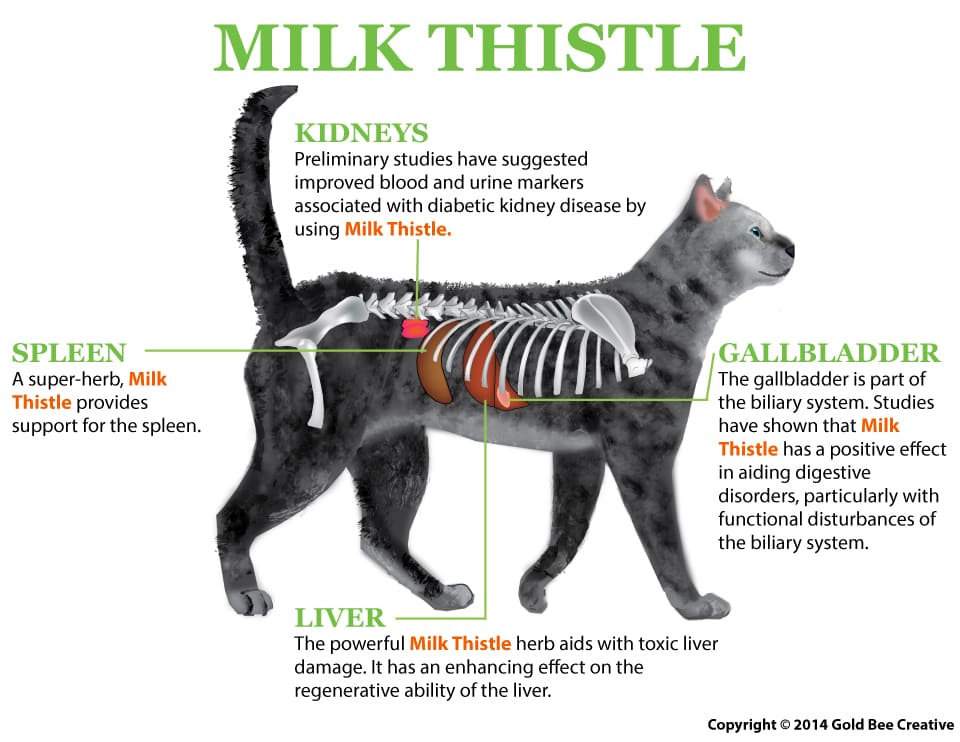
- item number
- PH1250c
- weight
- 0.7
- volume
- 3.4 fl. oz. (100ml)
- form
- liquid
- life stages
- adult, senior, kitten
- made in
- canada
NHV’s Milk Thistle for Cats contains just one ingredient.
- Certified Organic Milk Thistle Seed
Pet's Weight Dosage
To be taken twice daily. All NHV supplements are designed to be used together, and can, therefore, be given at once for convenience.
Select your pet's weight to determine the correct dose.
To be taken twice daily. Determine your pet’s weight and then use the easy chart below to determine the correct dose. This is the minimum dosage.
Pet's Weight Dosage
0 - 15 lb = 0.5 ml
16 - 30 lb = 1.0 ml
31 - 45 lb = 1.5 ml
46 - 60 lb = 2.0 ml
61 - 75 lb = 2.5 ml
Over 75 lb = 3.0 ml
How to Administer
Shake well before use. The easiest method is to use the dropper provide and places the drops into your pet’s food or favorite treat. You can also use the dropper and squirt directly into the pet’s mouth.
Some pets can be finicky, if this occurs consider hiding the drops in foods most pet’s love such as fish, chicken or yogurt or a favorite treat. If your pet only eats dry food then soak a few kibbles at feeding time.
For Best Results
Herbal dietary supplements are beneficial to the health and wellbeing of your pet and are safe for long-term use. Every pet responds to natural herbal supplements differently, therefore it is important to be consistent and administer the product daily. Supplements generally take two to four weeks to take effect, however this will vary from one animal to the next.
Product Storage
All NHV Natural Pet Products are pure herbal extracts and contain no artificial additives, preservatives or coloring. Shelf life after opening is 6 months and must be refrigerated after opening.
Cautions and Contraindications
Do not use Milk Thistle in pregnant or nursing animals. Speak to your vet before using our products. A second visit is recommended if your pet’s condition does not improve, or deteriorates after continued use of the supplements.
All information provided by NHV Natural Pet Products is for educational purposes only.
-
Description
Milk thistle, also known as Silybum Marianum is an herb that has been used for thousands of years by humans for its powerful medicinal properties. The active ingredient is Silymarin which contains flavonoids that have many beneficial properties including:
- Anti-inflammatory
- Antioxidant (acts as free radical scavengers)
- Detoxifying
- Promotes cellular regeneration and repair
- Removes toxic chemicals that can accumulate in your cat’s system
Milk thistle is one of the few herbs that have no equivalent in conventional medicine and has many uses. You can read about the many applications of Milk Thistle for cats and dogs on Dr. Hillary Cook's blog.
Milk Thistle for Liver Function
- Assists with detoxifying a damaged liver
- Enhances the regenerative effects by supporting and strengthening the liver
Milk Thistle for cats with liver disease is glycerin-based and safe for long-term use. This potent herbal formula provides excellent proactive support and can be taken in conjunction with conventional treatment.
Milk Thistle for Kidney Function
- Improves kidney function as well as aiding the damage that can occur in the body due to the use of drugs, radiation therapy, diabetes, and infections.
- Preliminary studies have shown Milk Thistle to improve markers associated with diabetic kidney disease in blood and urine.
Milk Thistle for Anti-Cancer Support
- Due to the antioxidant properties, Milk Thistle may help reduce or slow down the growth of specific cancer cells.
- May protect and prevent cancer cells from dividing in your cat’s body.
Milk Thistle may also be beneficial to cats undergoing chemotherapy as Silymarium may enhance the activity of certain chemo drugs.
You can read Peachez's Story with Milk Thistle for cats and how it helped her with cancer and liver problems.
NHV’s certified organic Milk Thistle is a safe herb that is recommended and used by holistic practitioners. All of our products are all-natural and formulated by veterinarians with a focus on comprehensively supporting the health and well-being of your feline family member.
If you have questions about Milk Thistle or any of our plant-based products, ask an NHV expert because at NHV we want your kitty’s health to be purrfect!

- item number
- PH1250c
- weight
- 0.7
- volume
- 3.4 fl. oz. (100ml)
- form
- liquid
- life stages
- adult, senior, kitten
- made in
- canada
-
Ingredients
NHV’s Milk Thistle for Cats contains just one ingredient.
- Certified Organic Milk Thistle Seed
-
Dosage
Pet's Weight Dosage
To be taken twice daily. All NHV supplements are designed to be used together, and can, therefore, be given at once for convenience.
Select your pet's weight to determine the correct dose.
To be taken twice daily. Determine your pet’s weight and then use the easy chart below to determine the correct dose. This is the minimum dosage.
Pet's Weight Dosage
0 - 15 lb = 0.5 ml
16 - 30 lb = 1.0 ml
31 - 45 lb = 1.5 ml
46 - 60 lb = 2.0 ml
61 - 75 lb = 2.5 ml
Over 75 lb = 3.0 ml
How to Administer
Shake well before use. The easiest method is to use the dropper provide and places the drops into your pet’s food or favorite treat. You can also use the dropper and squirt directly into the pet’s mouth.Some pets can be finicky, if this occurs consider hiding the drops in foods most pet’s love such as fish, chicken or yogurt or a favorite treat. If your pet only eats dry food then soak a few kibbles at feeding time.
For Best Results
Herbal dietary supplements are beneficial to the health and wellbeing of your pet and are safe for long-term use. Every pet responds to natural herbal supplements differently, therefore it is important to be consistent and administer the product daily. Supplements generally take two to four weeks to take effect, however this will vary from one animal to the next.Product Storage
All NHV Natural Pet Products are pure herbal extracts and contain no artificial additives, preservatives or coloring. Shelf life after opening is 6 months and must be refrigerated after opening.Cautions and Contraindications
Do not use Milk Thistle in pregnant or nursing animals. Speak to your vet before using our products. A second visit is recommended if your pet’s condition does not improve, or deteriorates after continued use of the supplements.All information provided by NHV Natural Pet Products is for educational purposes only.
Published: November 14, 2024

 USD
USD
 Canadian Dollars
Canadian Dollars

